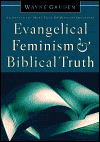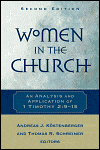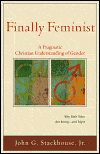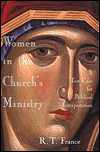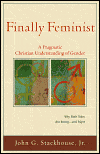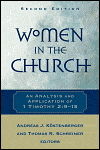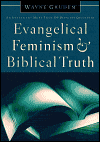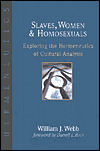The dilemma, stated in earlier posts, is very complicated and many scholars, pastors, and laymen will disagree as to the solution or whether there even needs to be one. What I asked was:
- How can we know what things in the Bible are accommodated but wrong (women and slaves but to different degrees) and which things are always right? and;
- By what standard do we judge whether an issue being addressed is temporary or permanent? and;
- How do know when to differentiate between the two in an objective manner compared to a subjective approach to the Bible (I like this doctrine but not that one)?
It would be very easy to simply say that the Bible is always clear and we simply need to obey it. As I said earlier:
Initially, what concerns me is one of the comments/endorsements related to one of these books – the assumption that all is now “settled definitively” (the debate is over) and to not accept that position is equated with not bowing our hearts to the authority of scripture.
